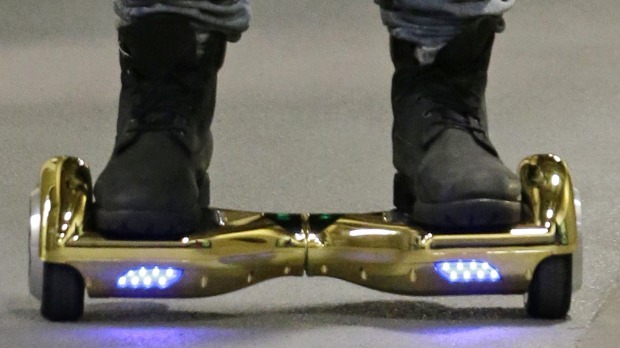
In mid-December 2015, a notice issued by the International Air Travel Association identified almost 60 airlines around the world that had banned hoverboards, either as carry-on or checked baggage.
Hoverboards – the generic name for the self-balancing, electrically powered two-wheelers – have been in the safety spotlight recently due to concerns that their lithium-ion batteries are a potential fire hazard.
Unlike other rechargeable batteries, lithium-ion batteries contain a flammable electrolyte, and they're pressurised. Testing standards for these batteries need to be stringent to ensure their safety, but there are concerns that cheaper hoverboards, which start from just under $400, might be fitted with batteries that are not manufactured to a sufficiently high standard. In Melbourne in January a fire that destroyed a house was caused by a hoverboard in charge mode, one of a number of house fires blamed on the devices.
Most of these conflagrations seem to occur while the hoverboard is charging, which raises suspicions that the charger itself might be part of the problem.
The issue shot to prominence just after Christmas when actor Russell Crowe was denied boarding on a Virgin Australia flight because his sons were travelling with their hoverboards. An incensed Crowe tweeted that he would never travel with Virgin again, but for some fliers, the guaranteed non-attendance of Crowe and family might not be a disadvantage when travelling with Virgin Australia.